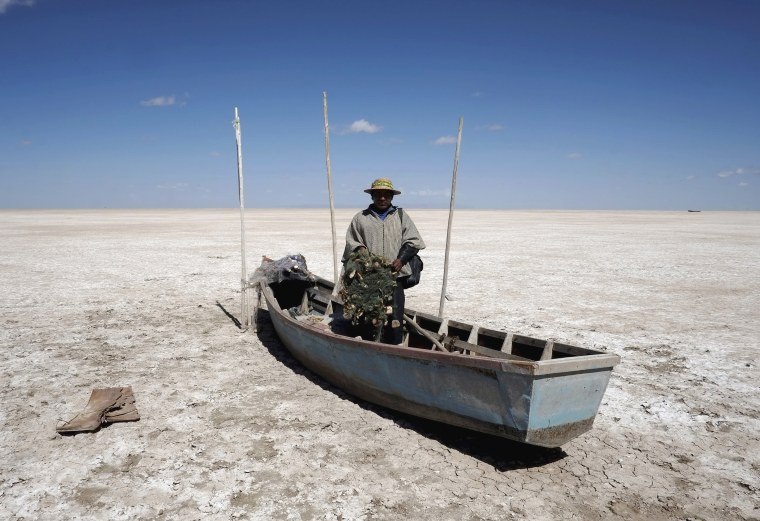
This week's reflection is brought to you by
Ephesians 5:8-14.
You call us,
O God,
to live as your children,
children of light.
Our light --
our goodness and truth --
needs to shine for the world to see,
especially in these darker than usual days.
If we do what is pleasing to you,
avoid darkness
and bring everything into your light,
that light will drive out darkness.
You call us to awake
from the sleep of unconcern for others,
to rise from darkness and death
and you shine on us!
Help us to reach out
with your love and light
as we are able.
Let us do your will
and share your joy
even as we do all we can to
"flatten the curve."
Remind us often
that we are all in this together,
that we hold our health in common
at this time.
May our smiles
rather than our anxieties
shine
for all those
who need reassurance.
Be with us,
O God.
+Amen
* * * * * * *
I'm finding it challenging to connect our little encyclical study with this world pandemic that has suddenly arrived almost everywhere. But I think that this week's piece of
Laudato Si: On Care for Our Common Home connects with things we need to do to protect our 'global commons' -- which is our earth's global health in the face of Covid-19 and climate change. We're looking at paragraphs 173 to 177, which can be accessed by
clicking here and scrolling down.
I'd like to begin by highlighting most of paragraph 173, where Pope Francis and the encyclical team say
Enforceable international agreements are urgently needed, since local authorities are not always capable of effective intervention. Relations between states must be respectful of each other's sovereignty, but must also lay down mutually agreed means of averting regional disasters which would eventually affect everyone. Global regulatory norms are needed to impose obligations and prevent unacceptable actions...
These words are referring to caring for the environment, but if there is any good news to be had right now, it seems that many (though not all) world leaders are taking this pandemic seriously and implementing necessary restrictions to slow the virus' spread. I am hopeful that, once we get through this health crisis, our leaders will have learned something about how to work together as a world community to implement necessary restrictions on things that harm Mother Earth. Perhaps our politicians will come to understand that the economy isn't the only bottom line of which we must take care. Our environments and all its living beings must become the priority! Pray with me for that awareness in leaders who are willing to stand for necessary changes to the way the dollar has been more important than creation!
In paragraph 174 Pope Francis makes note of the fact that international and regional conventions on ocean governance come up short due to "fragmentation and the lack of strict mechanisms of regulation, control and penalization..." He can't be more right when he says at the end of paragraph 174 that "What is needed, in effect, is an agreement on systems of governance for the whole range of so-called "global commons."
At the moment, we are learning from one another about ways to effectively reduce the rates of Corona Virus infection. Many scientists and healthcare professionals from around the globe are working together toward something that is necessary for the health we hold in common. Just imagine if we could use similar methods to involve the entire planet in caring for our common home!
In paragraph 175, we hear that we need to make more radical decisions about reducing pollution and eliminating poverty. It seems we human beings are stuck in a rut when it comes to handling our problems, the Pope says, because "the economic and financial sectors, being transnational, tends to prevail over the political."
As I watch our economic and financial sectors fluctuate and tumble, as I see our political leaders offer financial supports to those who are suddenly unemployed and unable to make ends meet because of job losses or health issues, and as I watch neighbours reaching out to neighbours, I can't help but hope that this global economic shake-up will be the wake up call our world needs to help it regain equilibrium for the sake of all creation, that people will understand that true wealth only exists when ALL BEINGS are well together.

So maybe it's time to think outside our previous boxes, "to devise stronger and more efficiently organized international institutions" with leaders who work together for justice, peace, and equity for all (paragraph 175). If you had to come up with "a true world political authority" (Pope Francis is quoting his predecessor, Pope Benedict, at the end of paragraph 175), how would you do it? Wouldn't it be great to have a wise world governing body that can look after humanity as a whole in times of crisis, work for disarmament and peace, ensure an end to poverty, disease and hunger, and protect the web of life that we call creation?
I sure don't know how to create a world governing body that will make a difference, but I'd like to nominate people like our female chief medical officers, who are offering wisdom and calm in this very difficult time. Drs. Deena Hinshaw, Bonnie Henry and Theresa Tam have been amazing in all their efforts. If we can support organizations that dream and brainstorm and train similar wise and calm leaders who can tell it like it is and inspire us to take these difficult steps like these women have in order to "flatten the curve" of the Corona virus, perhaps we could one day have similar leaders to save our 'global commons.'
But we need to start looking for these leaders now, and supporting their environmental efforts. If you find yourself with time on your hands this week, I'd encourage you to do a bit of research into environmental leaders and organizations that are making a difference for the sake of Mother Earth. And if there's a way for you to support their growth, even with just a note of appreciation for their efforts, go for it!
We hold so many things in common -- air, earth, water, our health and the health of this beautiful sphere we call home. Every one of us can do something to leave our home better than we find it right now. We arise from the sleep of unawareness of all those with whom we share our earth, and begin to shine God's light around us. Even just by offering a smile (though I challenge us all to do more than that)!








